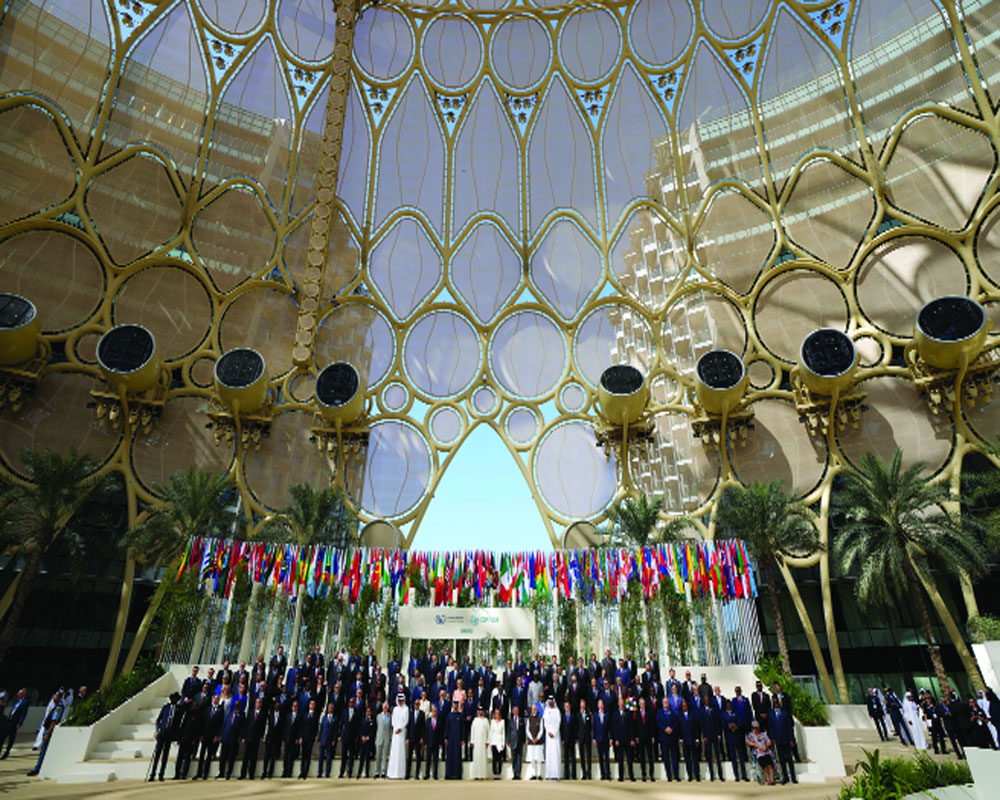COP28 sees developed countries pledging aid to developing nations to fight climate change
World leaders are in Dubai, the UAE, to take part in the World Climate Action Summit (COP28) which got under way on November 30. The Summit is an important moment for the heads of State and Government to signal their commitment to transform key climate-related decisions into concrete action and credible plans. Sheikh Mohamed bin Zayed Al Nahyan, UN secretary general António Guterres and King Charles III have already spoken at the inauguration ceremony. For 12 days, these leaders would discuss the menace of climate change; it is crucial to reflect on the progress made and the challenges ahead. The key outcomes of COP28 and the steps taken to combat the urgent threat of climate change have not been spectacular but some progress has indeed been achieved. On the COP28 opening day, all parties showed solidarity by agreeing to operationalise the 'loss and damage fund' and funding arrangements. Several countries pledged money to the fund, totalling around $300mn. The conclave saw renewed commitment from nations to the goals outlined in the Paris Agreement. Parties reiterated their commitment to limiting global warming to well below 2 degrees Celsius above pre-industrial levels, with efforts to pursue limiting it to 1.5 degrees Celsius. This commitment is crucial for preventing the most severe impacts of climate change.
Thankfully, both developing and developed countries have realised the importance of checking climate change. With assured funding, many plans will see the light of the day and go a long way in reducing carbon emissions, including ambitious targets for reducing greenhouse gas emissions, increasing renewable energy capacity and promoting sustainable development. This conference would be remembered for financing climate action, a breakthrough on the very first day. Developed countries pledged increased financial support to developing nations to help them adapt to climate change impacts and transition to low-carbon economies. The financial commitments aim to bridge the gap between developed and developing nations and recognising the shared responsibility; the conferences have emphasised the importance of innovation and technology transfer. As COP28 highlights the significance of nature-based solutions, the discussions focused on the role of forests, wetlands and other ecosystems in enhancing resilience to climate change. Initiatives were launched to promote sustainable land use and conservation practices. While COP28 has made some headway, challenges remain. Addressing these challenges is crucial for the overall fight against climate change. COP28 must achieve some tangible results when it ends. It is not just a environment issue but a question of survival of many developing nation who may perish if sea level rise or droughts and floods ruin their agriculture. It is now or never!
























